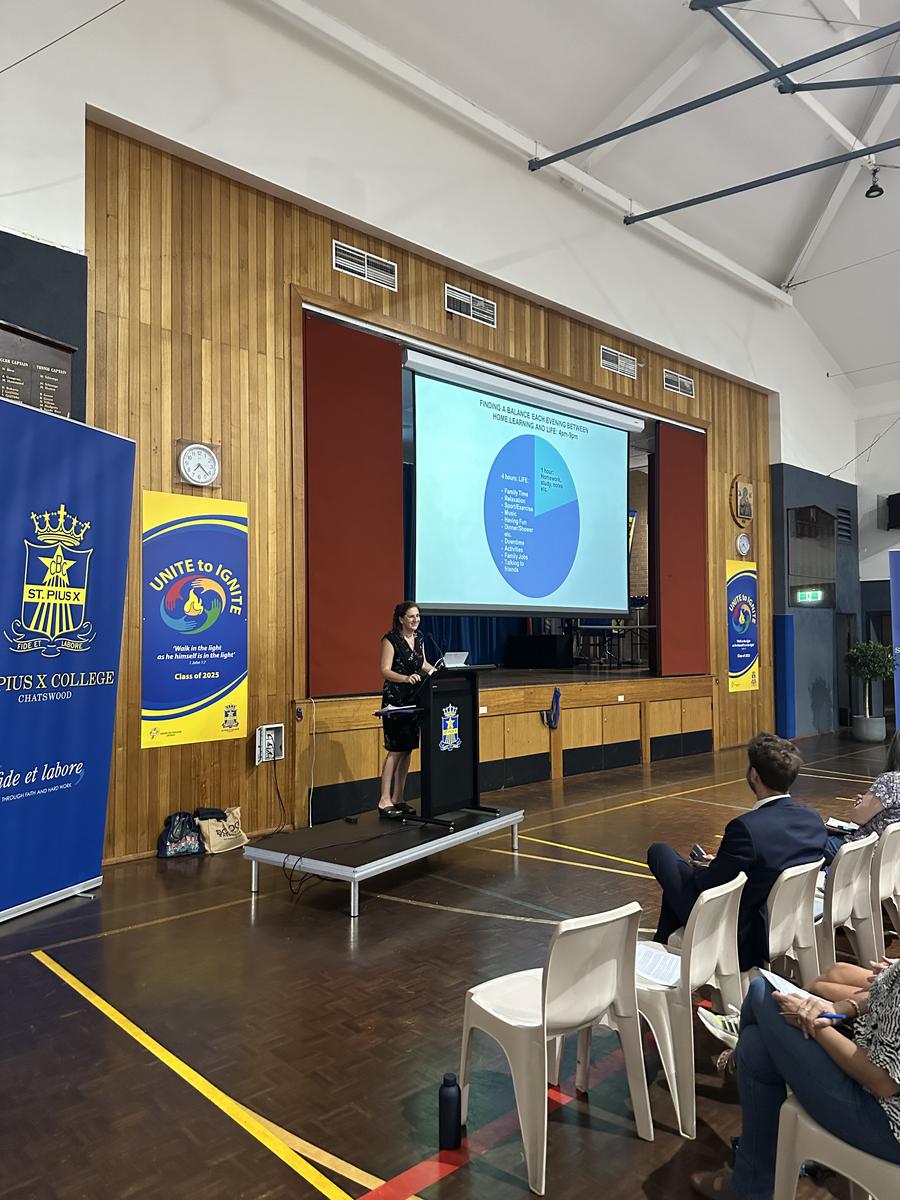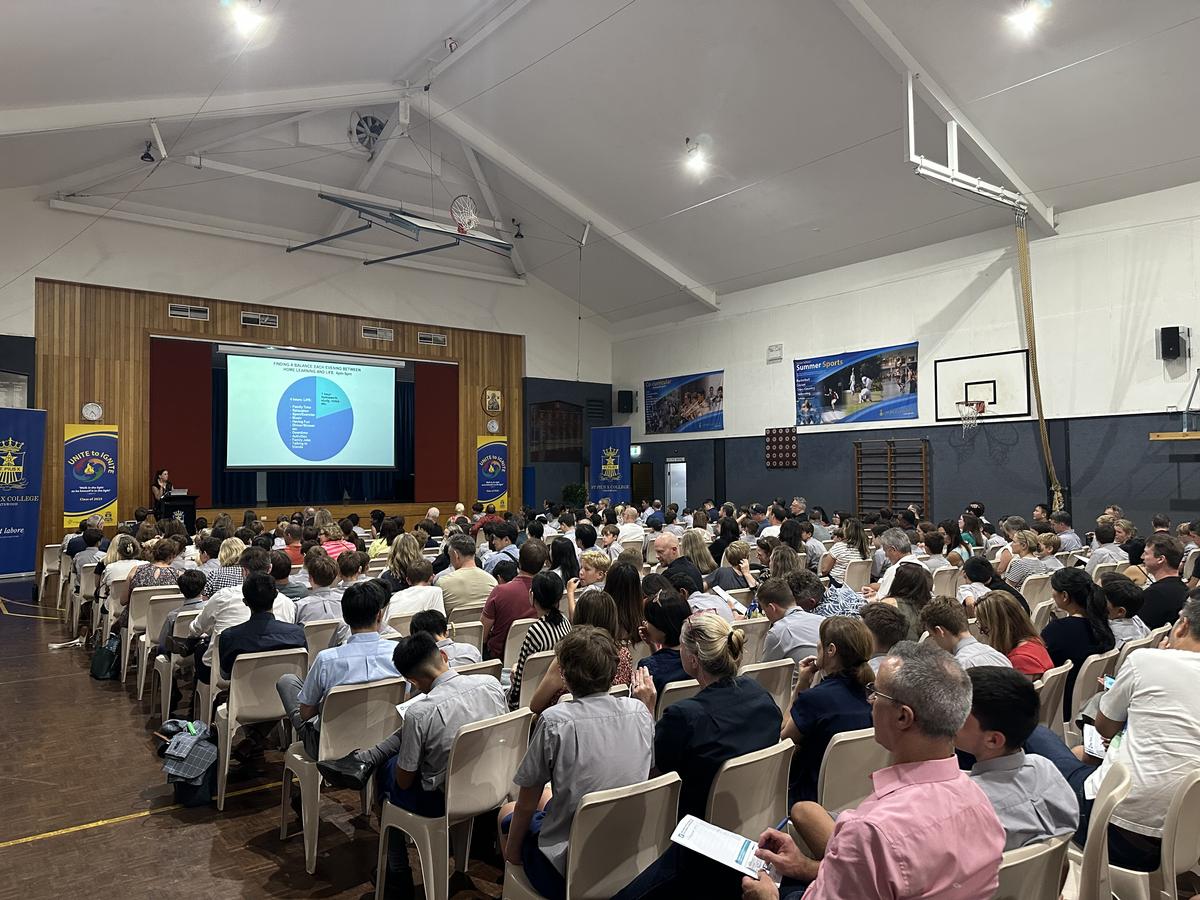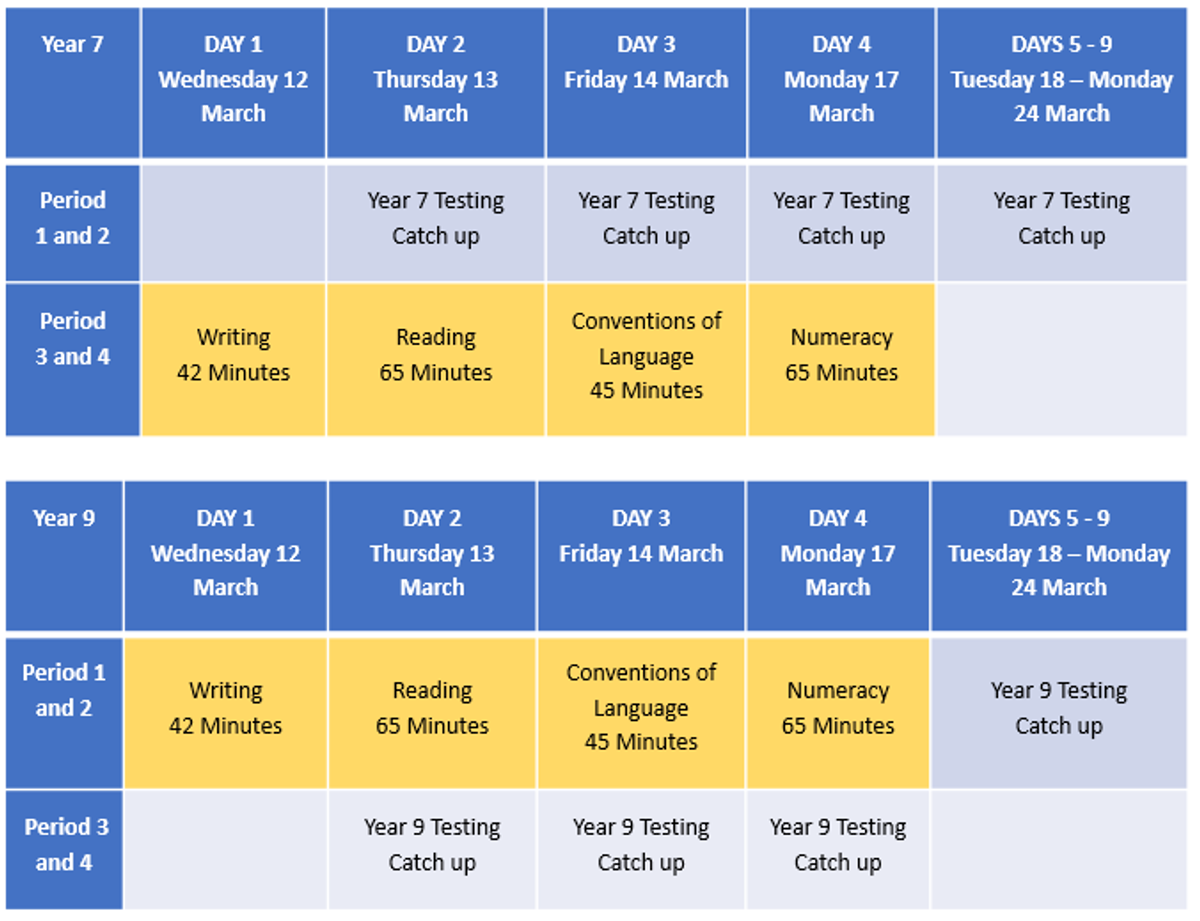Teaching and Learning

- Year 7 Study Skills Evening
- How to Break Down Complex Tasks
- NAPLAN
Year 7 Study Skills Evening
On Thursday 6 March, Year 7 students and their parents came together to hear advice from Dr Prue Salter who specialises in study skills and self-regulated learning through her company Enhanced Learning. Not only is she an expert in helping students develop the skills they need to be effective and efficient with their learning, but her experience as a secondary teacher and Pastoral Leader means that she has an insider’s knowledge about the struggles students face.
During the evening Dr Salter shared some simple but powerful strategies that students and parents can implement at home to help cope with the academic demands of school, become powerful learners, and achieve their personal best. The atmosphere in the College Gym was electric during the presentation with parents and students discussing what will work best for their family.
Study Night Evening Testimonials – 6 March
‘Year 7 attended a Study Night Evening about how to study effectively, which I believe is very important. We learnt different strategies to enhance productivity, learn effectively, and study to the best of our ability. Such tips included to only listen to classical music if you want to listen to music, having a clean, and organised working space at home, and revising the work you got assigned at school, when you get home. These tips may be simple but is extremely helpful for students just starting out like me, to get organised and study well.’ - Maximilian Allende
'The Study Skills Evening last week had interesting content about the best ways to study, how to organise your workspace at home, how to restrict time spent on phones, et cetera. The main thing that stood out to me was their part on listening to music while doing homework/studying, because that is something I personally do. They suggested to only listen to classical music (Mozart, Bach and the like) while studying as the slower bpm helps with focus. So far, some of the tips they’ve shared I’ve tried to put into action and have so far worked pretty well for me. I think that the evening was an overall success and is giving us important tips that will stick with us for the rest of our schooling career.' - James Ulevik
How to Break Down Complex Subjects
As Term 1 continues to progress, it is important to reflect on the many ways that individual students can target their study. Often it can be challenging to even know where to start. Whether it’s preparing for a history essay, learning a difficult science concept, or tackling a big project, it’s easy to feel stuck. But breaking down complex subjects into manageable steps can make studying not only easier but also more effective. The following advice from Dr Prue Salter and the Study Skills Handbook demonstrates how students can master the art of simplifying the complex.
1. Understand the Big Picture
Before diving into the nitty-gritty, take a step back and ask: What is this topic really about? For example, if you’re studying photosynthesis, the big picture might be understanding how plants convert sunlight into energy. Write this overarching goal at the top of your notes - it will act as a guide for everything you learn.
Tip: Look for summaries in your textbook or online resources to help you grasp the main idea.
2. Break It Down Into Sections
Once you understand the big picture, split the topic into smaller, more manageable chunks. Think of it like dividing a pizza into slices - it is easier to tackle one piece at a time than trying to eat the whole thing at once. For example:
Studying ‘The Nervous System’ can be broken into ‘Brain’, ‘Spinal Cord’, and ‘Nerves’.
Preparing for an essay might involve planning the introduction, body paragraphs, and conclusion separately.
Focus on one section at a time to avoid feeling overwhelmed.
Tip: Use your syllabus, textbook headings, or teacher’s notes to identify these sections. If the subject feels particularly dense, ask your teacher for clarification on what’s most important.
3. Create Visual Aids
Many students find it easier to remember information when they can see it laid out visually. Try these tools:
Diagrams: Perfect for subjects like science or geography. Draw a labelled diagram to understand relationships between components.
Flowcharts: Great for processes like historical events or problem-solving methods.
Mind Maps: Ideal for summarising ideas and seeing connections between subtopics.
Visual aids not only help you organise your thoughts but also make revision more enjoyable and less monotonous.
4. Learn in Layers
Think of studying like peeling an onion - learn the surface-level basics first, then delve deeper as your understanding grows. For instance:
First pass: Identify the key terms and concepts.
Second pass: Learn how these terms connect.
Third pass: Dive into details and examples.
Tip: Use multiple resources during this process. Your textbook might provide one perspective, but online videos or practice questions might give you a new way of looking at the material.
5. Review and Consolidate
Once you’ve mastered each section, it’s time to fit the pieces back together. Review how the smaller parts connect to the big picture. This step helps you see the subject as a whole and prepares you for tasks like essays, exams, or projects.
Tip: Try summarising the topic in your own words. If you can explain it simply, you’ve truly understood it.
From Chaos to Clarity
Complex subjects might seem intimidating at first glance, but with the right approach, you can simplify them into manageable steps. By understanding the big picture, dividing the topic into sections, and using tools like diagrams and mind maps, you’ll gain confidence and clarity. Remember, learning is a process - take it one step at a time, and you’ll find that even the most challenging topics can be conquered.
You can learn more at www.studyskillshandbook.com.au
NAPLAN
Below are the scheduled dates and times for NAPLAN in Years 7 and 9.
Mr Stephen Davidson - Assistant Principal, Teaching and Learning




